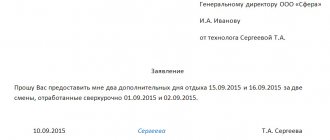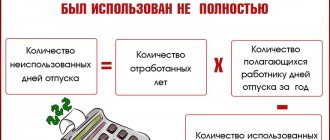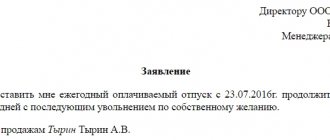During this year, several laws were adopted that protect the labor rights of pensioners and citizens of pre-retirement age. In this regard, the requirements for employers have become more stringent, including criminal liability. In particular, the adopted Federal Law of October 3, 2018 No. 352-FZ introduced Art. 144.1, which provides for strict sanctions for employers for dismissing pre-retirement workers, as well as unjustified refusal to hire a person on the grounds that he has reached pre-retirement age. Violation may result in a fine of up to RUB 200,000. or in the amount of wages or other income of the convicted person for a period of up to 18 months or compulsory work for a period of up to 360 hours.
In addition, bill No. 269898-7 is currently being considered, which amends Art. 356-357 Labor Code of the Russian Federation. Officials want to expand the powers of the labor inspectorate in the field of protecting the labor rights of workers, that is, to give this body the right to go to court on behalf of the employee and represent his interests in court. Accordingly, if the law is adopted, then retired workers can also take advantage of new opportunities to protect their rights.
Another innovation: Rostrud has involved labor inspectorates in organizing quarterly monitoring of information about employers and the number of pre-retirement workers (Rostrud Letter No. 858-PR dated July 25, 2018). The form must be submitted starting October 1, 2020, by the 15th day of the month following the reporting month. We wrote in more detail about legislative innovations and initiatives earlier.
It is obvious that the state is making attempts to legislatively protect older employees. Realizing this, the business that works with this category of employees, in response to the new laws, put forward demands on its part: it asked for preferences - a reduction in contributions, the introduction of tax benefits in cases where the employer invests money in the retraining and advanced training of pre-retirees, etc. .d. However, their appeal was not satisfied.
Therefore, taking into account the new requirements starting in 2020, employers should be especially careful in relation to retired and pre-retired employees and try not to violate labor legislation.
What can be the dismissal of a pensioner?
First of all, it should be noted that reaching retirement age is not grounds for dismissal. An employee who has applied for a pension can either continue to work and quit when he wants, or he can want to quit immediately in connection with his retirement. Depending on the circumstances, different dismissal scenarios apply.
- The employee has already retired, continues to work for the company, but at some point decides to quit
In this case, the basis for dismissal is the employee’s own desire. This is the general basis indicated in Art. 77 of the Labor Code of the Russian Federation, therefore, the employee must notify the employer in writing two weeks in advance of his intention to leave the company (Part 1 of Article 80 of the Labor Code of the Russian Federation). And the employee must work for these two weeks in the company.
In this case, an entry is made in the work book: “Dismissed at his own request, paragraph 3 of part one of Article 77 of the Labor Code of the Russian Federation.”
- An employee resigns due to retirement
Termination of labor relations between an employer and an employee in connection with the latter’s retirement has a feature that is reflected in Part 3 of Art. 77 Labor Code of the Russian Federation. It implies termination of the employment contract within the period specified in the employee’s application. That is, the employer does not have the right to require the employee to work two weeks.
In this case, the entry in the work book will be as follows: “Dismissed at his own request due to retirement, paragraph 3 of part one of Article 77 of the Labor Code of the Russian Federation.”
What does the law say?
The main legislative act regulating the relationship between employer and employee is the Labor Code (LC RF).
It lacks both the term “time off” and the employer’s direct obligation to provide it or compensate it in cash.
Most often, time off means additional rest time, which is compensated to the employee in cases established by the legislation of the Russian Federation:
- monetary compensation for the hours actually worked (a coefficient of 1.5 will be applied to the hourly rate for the first 2 hours of work and a coefficient of 2.0 for subsequent ones);
- additional unpaid rest time (in the amount of actual overtime).
| Conditions implying worker compensation | Compensation procedure | Rationale |
| Working outside the employee's assigned hours (overtime) | Art. 152 | |
| Work on weekends and non-working days | At the employee's choice:
| Art. 153 |
| Overtime within the shift schedule | Paid day of rest between shifts (in the amount of one day's earnings) | Art. 301 |
| Donation | The days of examination, blood donation and the next day are paid (in the amount of one day's earnings). In certain cases, these days may be moved to another calendar period. | Art. 186 |
| Employees are on duty after work, on weekends and non-working days | Unpaid additional rest time, the duration of which is equal to the time on duty. If time off is not used within 10 days of duty, it is forfeited. | Resolution of the Secretariat of the All-Union Central Council of Trade Unions dated April 2, 1954 No. 233 “On duty at enterprises and institutions” |
It is the responsibility of the enterprise to ensure proper accounting of accrued and used time off.
How are time off days calculated during a shift work schedule? The answer is here.
The procedure for dismissing an employee due to retirement
If an employee who is about to retire decides to quit, then the algorithm of his actions will be as follows.
1. The employee writes a letter of resignation of his own free will in any form.
It is important to include the following information in this statement:
- FULL NAME;
- job title;
- grounds for dismissal (“at one’s own request”);
- reason for dismissal (“due to retirement”);
- date of dismissal.
How many times can an employee resign due to retirement?
On the official website, Rostrud expresses a clear position on this issue. If an employee once used the wording “due to retirement,” then he does not have the right to quit a second time for the same reason. It does not matter whether he worked before his dismissal “due to retirement” for the same employer or for another.
Thus, if a retired employee already has a record of dismissal in connection with retirement in his work book, then he can subsequently resign only with the wording “of his own free will.” At the same time, he must notify the employer of his plans two weeks in advance (unless he has another valid reason not related to retirement) and, accordingly, work out this period.
2. The employer prepares the following package of documents:
- issues an order to terminate the employment contract with the employee
When placing an order, several nuances should be taken into account. In the line “grounds for termination (termination) of the employment contract (dismissal)” you must indicate the basis for dismissal in accordance with clause 3, part 1, art. 77 of the Labor Code of the Russian Federation and the reason for dismissal (“in connection with retirement”).
In the line “document number” and “date of preparation” the details of the employee’s application are indicated. Next, the employee gets acquainted with the order against signature.
If an employee asks to issue a copy of the order, the employer is obliged to do this by duly certifying the document (Article 84.1 of the Labor Code of the Russian Federation). If the dismissal order cannot be brought to the attention of the employee or the employee refuses to sign it, then a corresponding entry is made on the document.
- makes an entry in the work book
The work book indicates the basis and reason for dismissal - they must correspond to the text of the order.
3. The employer makes the necessary payments to the employee.
Art. 140 of the Labor Code of the Russian Federation obliges the employer, upon termination of the employment contract, to pay the employee all amounts due on the day of dismissal. If the person did not work on that day, then the corresponding amounts must be paid no later than the next day after the dismissed employee submits a request for payment.
Upon dismissal of one's own free will in connection with retirement, the employee is paid a salary, compensation for unused vacation and other amounts that may be provided for by a collective agreement or industry agreements.
If the employer does not pay the amount on time due to the fact that he did not formalize the dismissal on the day specified in the application, that is, without working off, then he will have to pay the amount with interest, according to Art. 236 Labor Code of the Russian Federation.
Compensation for unused time off upon dismissal
I have been working in the organization for 10 years (on a rotational basis). During this period, more than 400 days off were accumulated. The employer signed applications to work on a day off only on a single basis, with a day of rest provided. Due to the specific nature of the enterprise, I could not choose all the days off. At the moment, I would like to write for compensation upon dismissal. The employer categorically refuses to pay compensation. For obvious reasons, I won’t be able to take that many days off. Tell me what to do in this situation.
thus, now: you write a letter of resignation in which you ask the employer to pay you compensation; in the letter you can indicate the articles of law that are indicated in my answer and the liability that threatens the employer. also indicate that if the employer disagrees with your position, contact the prosecutor’s office, labor inspectorate and court.
Dismissal of a pensioner due to staff reduction
The dismissal of a pensioner due to staff reduction occurs on a general basis. At the same time, according to Art. 179 of the Labor Code of the Russian Federation, specialists with higher productivity and qualifications have a preferential right to remain at work.
The employer is obliged to warn the employee about the upcoming layoff two months in advance - in writing. It must indicate that the employee is leaving due to staff reduction after the specified period, from the date of receipt of the notice, as well as information about the absence of vacancies, and therefore he cannot be transferred to another job. The employee gets acquainted with this document against signature.
The employer may offer the employee to terminate the employment contract before the expiration of the notice period if it is ready to pay him additional compensation. The amount of compensation is the average salary, which is calculated in proportion to the time remaining before the expiration of the notice of dismissal.
When reducing staff, the employer is obliged to offer the employee another job available to him in the given area - a vacant position or job that corresponds to his qualifications, as well as a vacant lower position or job. The employee becomes familiar with these proposals against signature. He can take time to think about the employer's offer - until the notice period for dismissal expires.
The employer also issues an order to reduce the number of employees in any form. The document must include the following information:
- the basis for the reduction (owner’s decision, reorganization or other);
- positions, how many staff units are subject to reduction;
- date of introduction of changes (taking into account the notice period for employees about dismissal).
If a retired employee was dismissed early, having given his consent, then the order reflects the details of the written consent (it can be recorded directly on the order). Rostrud advises attaching the original written consent of the employee to early dismissal, and attaching a certified copy to your personal file. The employee must be familiarized with the order against signature.
An entry is made in the work book about the termination of the employment contract due to staff reduction (grounds of clause 2 of Article 81 of the Labor Code of the Russian Federation), the signature and seal of the employer and the signature of the dismissed employee are affixed.
On the day of dismissal, the employee receives from the employer:
- work book;
- all payments. If the employee did not work on that day, then the amounts are paid no later than the day following after the dismissed employee submits a request for payment;
- a certificate of the amount of earnings for the two calendar years preceding the year of termination of work;
- certified copies of work-related documents (if the employee requested them in writing).
How much severance pay is an employer required to pay when laying off a retired employee?
The employer is obliged to pay one severance pay and maintain the employee’s average earnings for the period of searching for a new job (Article 178 of the Labor Code of the Russian Federation).
Severance pay in case of staff reduction is paid in the amount of average monthly earnings. If within two months after dismissal a person does not get another job, he is paid another average monthly salary. To receive it, a person writes an application and addresses it to the employer, and also provides him with his work book.
In some cases, the average monthly salary is maintained for the third month from the date of dismissal. But this depends on the decision of the employment service - provided that the person applied to this organization within two weeks after dismissal and they could not help him with employment.
Payments
List of payments upon dismissal.
Upon termination of employment relations, retired employees, like other categories of citizens, are entitled to appropriate cash payments. Such payments include:
- issuance of wages for the entire period of time worked since the last payment;
- financial assistance, if such is established by the company’s internal regulatory documents;
- severance pay, if established in the organization;
- payment for unused vacation;
- payments compensating for all unused time off and days off, if any;
- bonuses and quarterly payments;
- payment of “13” salaries;
- other payments by decision of the manager or other founders.
Terms of payments upon dismissal
According to Article No. 140 of the Labor Code of the Russian Federation, settlements with an employee leaving his position must be made on the last work shift - the day of actual dismissal. In most cases, it occurs two weeks after the employee submitted his letter of resignation. However, the existing rule also provides for its exceptions.
1. If an employee goes on vacation, after which he immediately resigns, then the money must be transferred before the start of the vacation (on the last working day).
2. If on the last working day the employee is absent from his workplace, then the payment must be made no later than the next day after the quitter himself submits a request to receive the payment.
When a former employee of an enterprise or firm does not come for payment for a long time and does not pick up his work book, the employer must send an invitation by registered mail to receive funds. Also, due payments can be made to your existing bank account details. The work book is sent by registered mail using Russian Post.
By completing these steps, the management of the enterprise will relieve itself of all responsibility for late payment of the employee.











